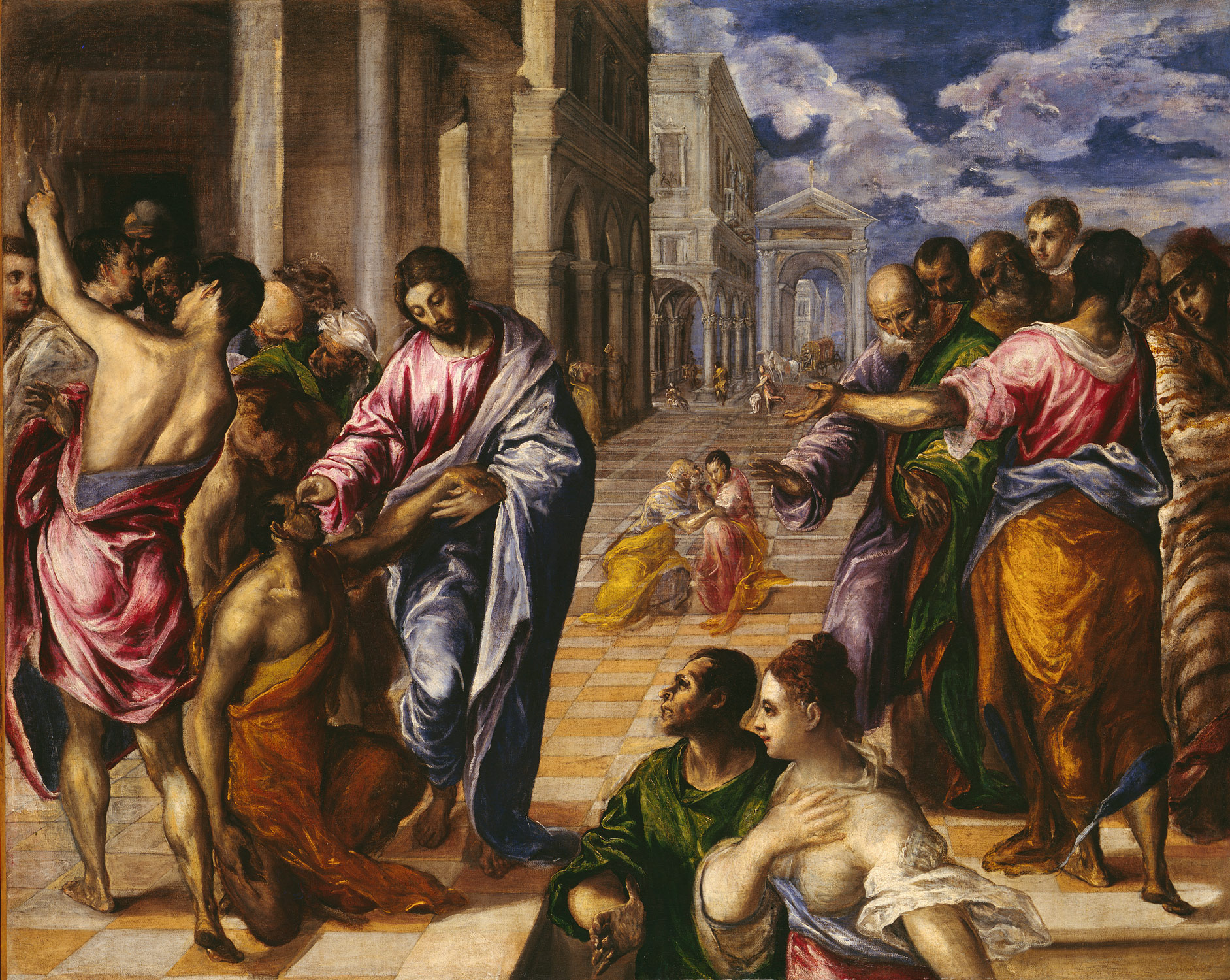The Rich and the Blind in the Kingdom of God
St. Mark 10:46-52
He buildeth not with warrior might
His empire, nor with heart's affright;
But raised upon a Tree for throne
Draws all things to himself alone.
- hymn for Lauds on Christ the King.
In today's gospel, Christ continues his ascent to Jerusalem from the wilderness, and at Jericho he encounters the blind man, Bartimaeus. The story is probably familiar: Bartimeus calls out "Son of David, have mercy on me," and the people tell him to be quiet, but Christ calls Bartimeus to himself and tells him, "Go your way; your faith has saved you." But Bartimeus, rather than leaving, follows Christ on his way.
There is a striking contrast here with the story of the rich young ruler. Bartimeus is begging on the side of the road and the crowds try to keep him away, whereas the rich man comes to Jesus without any difficulty. The rich man asks what he needs to do to inherit eternal life, while Bartimeus only asks for Christ's mercy to restore his sight. And in the end, the rich man will not follow Christ despite being asked, and Bartimeus follows even though he was not asked.
It is, indeed, hard for a rich man to enter the Kingdom. All of chapter 10 and half of chapter 9 of the Gospel of St. Mark have been telling us about the structure of Christ's Kingdom: the last shall be first and the first shall be last (9:35), and the Kingdom of God is made up of children like these (10:14). This all culminates in the story of Bartimeus, just before the Triumphal Entry into Jerusalem, when the blind beggar on the side of the road declares Jesus the "Son of David."
The king of David's line is crowned with the lowliest of crowns, surrounded by the lowly, the blind and lame. The precondition for authority in this Kingdom is humble service to all, and a desire to follow Christ more than to be comfortable, respected, or safe. For God sees not as man sees: man sees the outward appearance, but the Lord looks at the heart." (I Sam. 16:7b)
He buildeth not with warrior might
His empire, nor with heart's affright;
But raised upon a Tree for throne
Draws all things to himself alone.
- hymn for Lauds on Christ the King.
In today's gospel, Christ continues his ascent to Jerusalem from the wilderness, and at Jericho he encounters the blind man, Bartimaeus. The story is probably familiar: Bartimeus calls out "Son of David, have mercy on me," and the people tell him to be quiet, but Christ calls Bartimeus to himself and tells him, "Go your way; your faith has saved you." But Bartimeus, rather than leaving, follows Christ on his way.
There is a striking contrast here with the story of the rich young ruler. Bartimeus is begging on the side of the road and the crowds try to keep him away, whereas the rich man comes to Jesus without any difficulty. The rich man asks what he needs to do to inherit eternal life, while Bartimeus only asks for Christ's mercy to restore his sight. And in the end, the rich man will not follow Christ despite being asked, and Bartimeus follows even though he was not asked.
 |
| Christ Healing the Blind El Greco, circ. 1570 |
It is, indeed, hard for a rich man to enter the Kingdom. All of chapter 10 and half of chapter 9 of the Gospel of St. Mark have been telling us about the structure of Christ's Kingdom: the last shall be first and the first shall be last (9:35), and the Kingdom of God is made up of children like these (10:14). This all culminates in the story of Bartimeus, just before the Triumphal Entry into Jerusalem, when the blind beggar on the side of the road declares Jesus the "Son of David."
The king of David's line is crowned with the lowliest of crowns, surrounded by the lowly, the blind and lame. The precondition for authority in this Kingdom is humble service to all, and a desire to follow Christ more than to be comfortable, respected, or safe. For God sees not as man sees: man sees the outward appearance, but the Lord looks at the heart." (I Sam. 16:7b)



Comments
Post a Comment